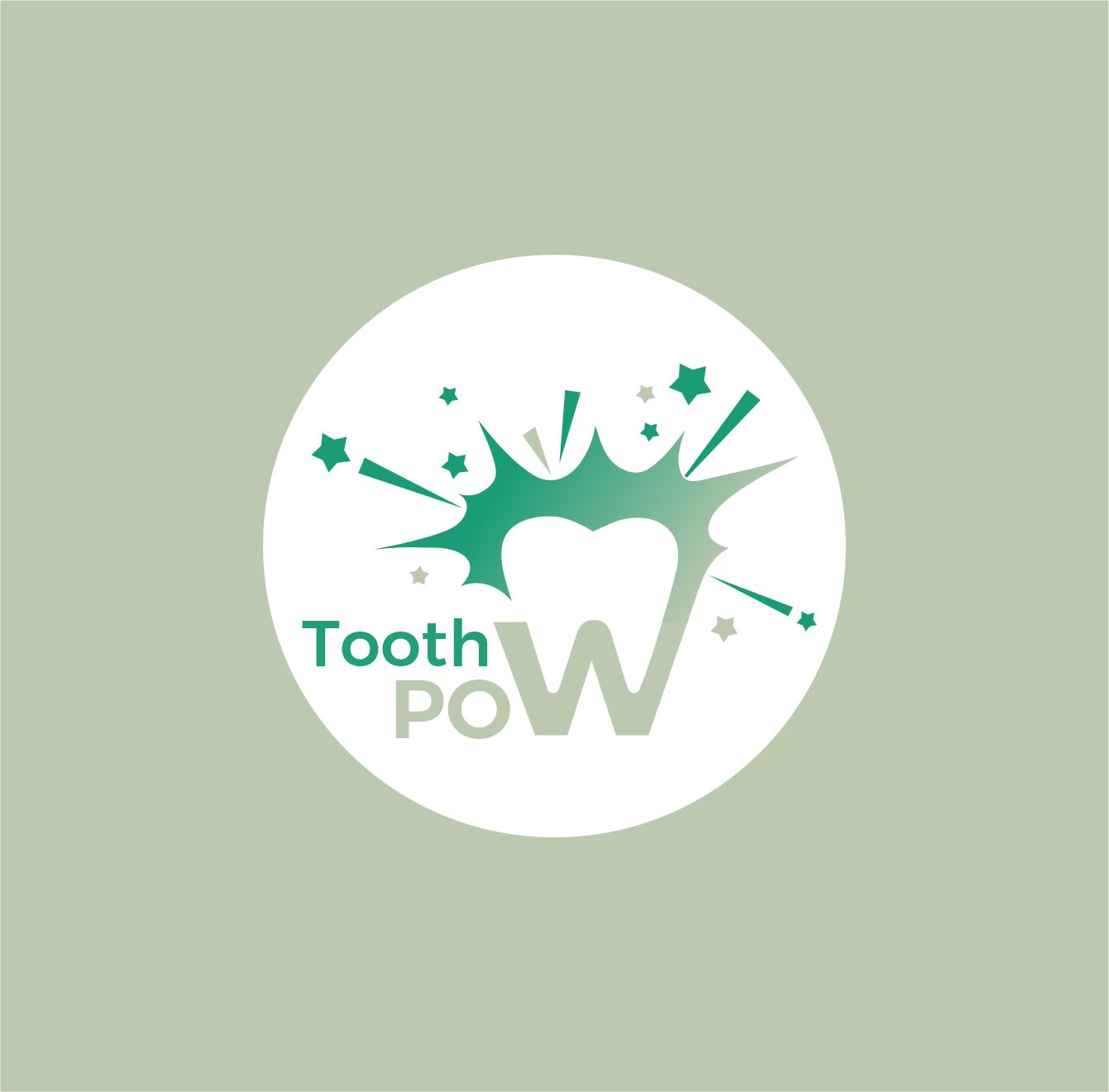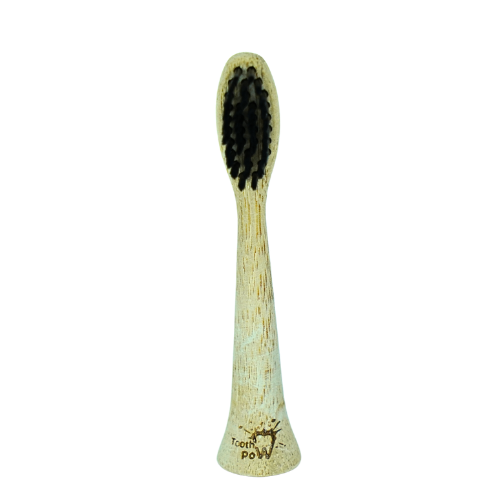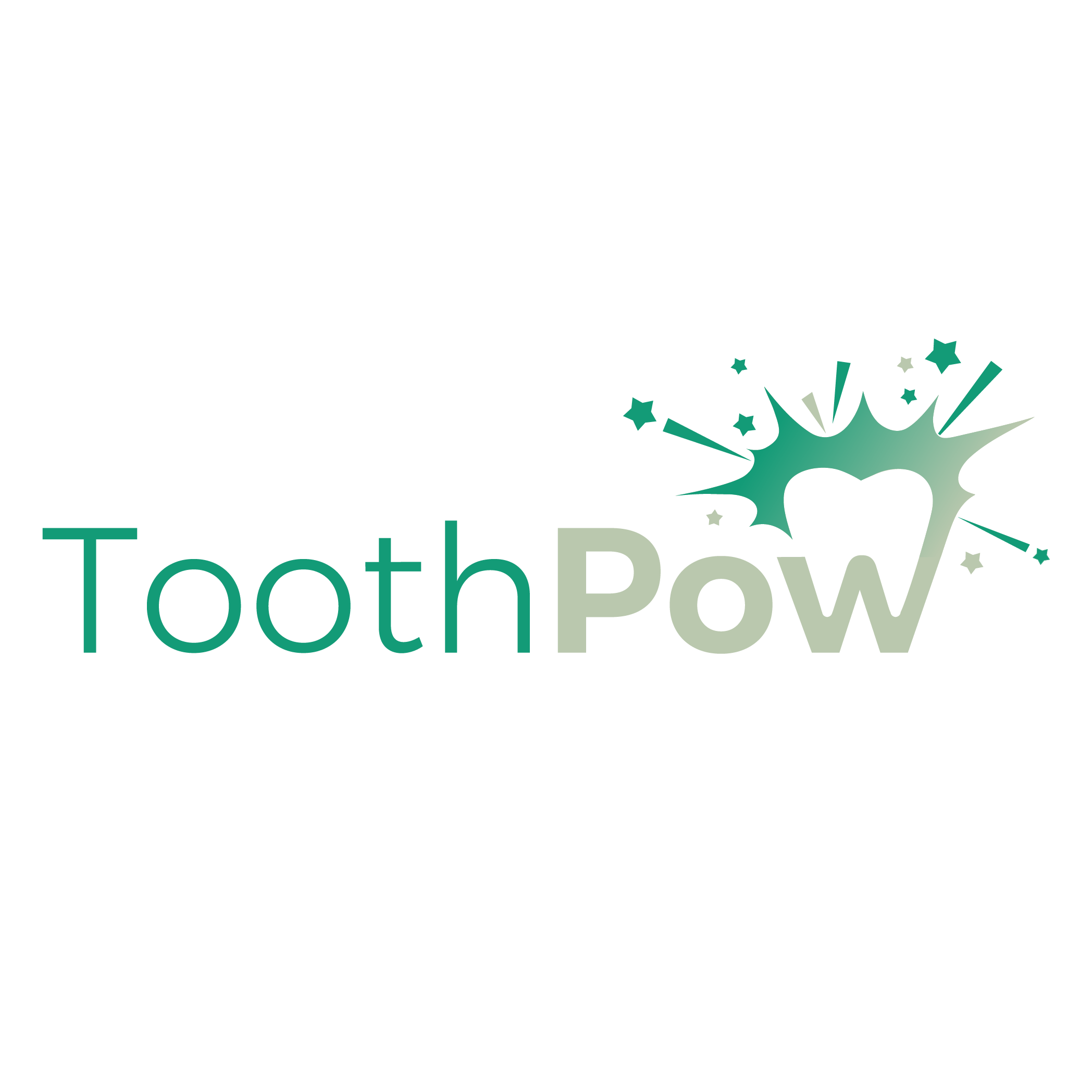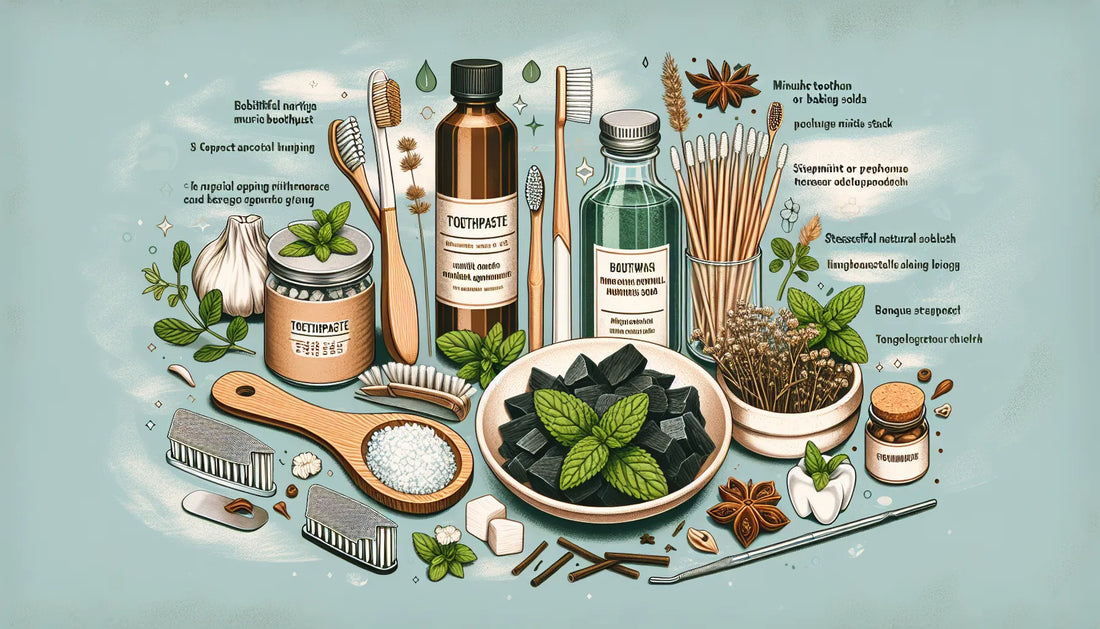Welcome to the world of natural oral hygiene!
In this guide, we will explore expert tips and techniques for using natural products to maintain a healthy and vibrant smile. As more people seek natural alternatives for their oral care, it's essential to understand the best practices and products available. From herbal toothpaste to oil pulling, we will delve into the benefits and proper usage of these natural remedies. Whether you're a seasoned natural product enthusiast or just beginning to explore this realm, this comprehensive resource will provide valuable insights and recommendations to elevate your oral hygiene routine. Get ready to discover the power of nature in achieving a sparkling, healthy smile!.
Benefits of Natural Products
In recent years, there has been a growing demand for natural oral hygiene products. Many people are drawn to the idea of using all-natural toothpaste, mouthwash, and other oral care products. However, it's important to understand that natural doesn’t always translate to greater effectiveness. Here’s a closer look at the science behind some popular natural ingredients.
One of the primary benefits of natural oral care is improved health. Many conventional oral care products contain chemicals that can be harmful when ingested or absorbed through the skin. On the other hand, natural oral care products use safer ingredients that are better for overall health. Additionally, natural oral care products can be just as effective, if not more effective, at fighting plaque, cavities, and gum disease as their conventional counterparts.
It's essential to note that regular dental check-ups and cleanings are crucial for maintaining good oral health. Delaying or neglecting oral care can lead to larger ailments, so continuous monitoring and early detection of oral issues are vital.
While the demand for natural oral hygiene products is true, it's important to weigh the effectiveness of these products against traditional ones. Understanding the benefits and potential drawbacks of natural oral care can help individuals make informed decisions about their oral hygiene routine.

The Benefits of Natural Ingredients
Natural oral hygiene products are formulated without synthetic chemicals, artificial flavors, or preservatives, making them a healthier choice for your mouth and body. Here are some of the key benefits:
Non-Toxic: Natural products are free from potentially harmful chemicals like sodium lauryl sulfate (SLS), triclosan, and artificial sweeteners, which can cause irritation or adverse reactions.
Effective: Ingredients like baking soda, xylitol, and essential oils provide effective cleaning and antibacterial properties, helping to maintain oral health without the need for harsh chemicals.
Gentle on Sensitive Teeth and Gums: Natural products often contain soothing ingredients like aloe vera and chamomile, which can help reduce inflammation and irritation, making them ideal for people with sensitive teeth and gums.
Long-Term Health Benefits: Regular use of natural products can contribute to overall health by reducing exposure to harmful substances and supporting a balanced oral microbiome.
Environmental Impact
Choosing natural oral hygiene products can also help reduce your environmental footprint. Many natural products are packaged in eco-friendly materials and are biodegradable or recyclable. Here are some ways they benefit the environment:
Reduced Plastic Waste: Natural products often come in sustainable packaging, such as glass jars, metal tubes, or compostable materials, helping to reduce plastic waste.
Biodegradable Ingredients: Ingredients like bamboo, coconut oil, and essential oils are biodegradable, meaning they break down naturally and do not contribute to environmental pollution.
-
Sustainable Sourcing: Many natural products are made with sustainably sourced ingredients, ensuring that their production supports environmental conservation and ethical practices.

Key Natural Products for Oral Hygiene
Natural Toothpaste
Natural toothpaste is a cornerstone of a natural oral hygiene routine. It is typically free from fluoride, artificial colors, and synthetic chemicals. Here are some key ingredients to look for in natural toothpaste:
Hydroxyapatite: A naturally occurring mineral that strengthens enamel and reduces tooth sensitivity. It is a great alternative to fluoride.
Baking Soda: A mild abrasive that helps remove plaque and stains while neutralizing acids in the mouth.
Essential Oils: Oils like peppermint, tea tree, and clove provide antibacterial properties and freshen breath.
Xylitol: A natural sweetener that inhibits the growth of cavity-causing bacteria and helps maintain a healthy oral microbiome.
Clay: Bentonite clay and kaolin clay can help detoxify the mouth and provide a gentle abrasive action for cleaning teeth.
Bamboo Toothbrushes
Bamboo toothbrushes are an eco-friendly alternative to plastic toothbrushes. They are biodegradable, sustainably sourced, and have antimicrobial properties. Here are some features to consider:
Biodegradable Handles: Made from bamboo, which is a fast-growing and sustainable resource. The handles can be composted or disposed of without harming the environment.
Plant-Based Bristles: Look for toothbrushes with bristles made from materials like castor bean oil or other plant-based sources to ensure the entire toothbrush is biodegradable.
Ergonomic Design: Many bamboo toothbrushes are designed with ergonomic handles for a comfortable grip, making them easy to use.
Coconut Oil
Coconut oil is a versatile natural product that can be used for oil pulling, a traditional practice that involves swishing oil in the mouth to remove toxins and improve oral health. Here are some benefits of coconut oil:
Antimicrobial Properties: Coconut oil contains lauric acid, which has strong antibacterial, antiviral, and antifungal properties, helping to reduce harmful bacteria in the mouth.
Reduces Plaque and Gingivitis: Regular oil pulling with coconut oil can help reduce plaque buildup and gingivitis, leading to healthier gums.
Whitens Teeth: Coconut oil can help remove surface stains from teeth, resulting in a brighter smile.
Moisturizes Oral Tissues: Oil pulling with coconut oil can help moisturize and soothe dry or irritated oral tissues.
Natural Mouthwash
Natural mouthwash is a great addition to your oral hygiene routine. It helps kill bacteria, freshen breath, and promote healthy gums without the use of harsh chemicals. Key ingredients to look for include:
Aloe Vera: Known for its soothing and healing properties, aloe vera can help reduce inflammation and promote gum health.
Tea Tree Oil: A powerful antiseptic that helps kill bacteria and prevent infections.
Peppermint Oil: Provides a refreshing flavor and helps freshen breath while offering antibacterial benefits.
Xylitol: Helps reduce plaque buildup and maintain a healthy balance of oral bacteria.
How to Incorporate Natural Products into Your Routine
Starting with Natural Toothpaste
Switching to natural toothpaste is a simple yet effective way to begin your journey towards natural oral care. Here are some tips for making the transition:
Choose the Right Product: Look for a natural toothpaste that meets your specific needs, such as one with hydroxyapatite for enamel strengthening or one with baking soda for whitening.
Introduce Gradually: If you are used to conventional toothpaste, the texture and taste of natural toothpaste may be different. Start by using it once a day and gradually increase to twice daily as you get accustomed to it.
Pair with Proper Brushing Technique: Use a soft-bristled toothbrush and brush for at least two minutes, twice a day. Make sure to cover all surfaces of your teeth and along the gumline.
Choosing a Bamboo Toothbrush
Making the switch to a bamboo toothbrush is an easy way to reduce plastic waste and support sustainability. Here’s how to get started:
Select a Quality Brush: Look for a bamboo toothbrush with plant-based bristles and a comfortable handle. Check reviews and product descriptions to ensure durability and effectiveness.
Proper Care and Maintenance: Rinse your bamboo toothbrush thoroughly after each use and allow it to dry in a well-ventilated area to prevent mold growth. Replace your toothbrush every three months or sooner if the bristles become frayed.
Disposal: When it’s time to replace your bamboo toothbrush, remove the bristles with pliers and compost the bamboo handle or dispose of it in a biodegradable waste bin.
Trying Oil Pulling with Coconut Oil
Oil pulling is a simple practice that can have significant benefits for your oral health. Here’s a step-by-step guide:
Choose the Right Oil: Use high-quality, organic coconut oil for the best results.
Measure the Oil: Take about one tablespoon of coconut oil. You can start with a smaller amount if you find it difficult to swish that much oil initially.
Swish in Your Mouth: Swish the oil around your mouth for 15-20 minutes, ensuring it reaches all areas, including between your teeth. Avoid swallowing the oil, as it contains the toxins and bacteria pulled from your mouth.
Spit and Rinse: Spit the oil into a trash can (not the sink, as it can clog pipes). Rinse your mouth with warm water and brush your teeth as usual.
Frequency: For best results, practice oil pulling daily, ideally in the morning before eating or drinking.
Using Natural Mouthwash
Incorporating natural mouthwash into your routine can enhance your oral hygiene. Here’s how to use it effectively:
Select the Right Mouthwash: Choose a natural mouthwash with ingredients that address your specific needs, such as aloe vera for gum health or tea tree oil for antibacterial protection.
Proper Use: After brushing and flossing, pour the recommended amount of mouthwash (usually one to two tablespoons) into a cup. Swish it around your mouth for 30 seconds to one minute, making sure to reach all areas.
Spit and Rinse: Spit the mouthwash out and avoid eating or drinking for at least 30 minutes to allow the ingredients to work effectively.
Frequency: Use natural mouthwash once or twice daily, depending on your oral health needs.
Tips for Maximizing the Benefits of Natural Products
Reading Labels Carefully
When choosing natural oral hygiene products, it’s essential to read labels carefully to ensure you’re selecting truly natural and effective products. Here are some tips:
Look for Certifications: Certifications like USDA Organic, Non-GMO Project Verified, and cruelty-free logos can help you identify genuine natural products.
Avoid Harmful Ingredients: Steer clear of products containing artificial sweeteners, sulfates, parabens, and synthetic fragrances.
-
Research Ingredients: Familiarize yourself with common natural ingredients and their benefits. This knowledge can help you make informed choices.
Being Consistent
Consistency is key to seeing results with natural products. Here are some tips to help you stay consistent:
Establish a Routine: Set a regular oral hygiene routine that includes brushing twice daily, flossing, and using natural mouthwash.
Set Reminders: Use reminders or alarms on your phone to help you stick to your routine, especially when introducing new practices like oil pulling.
Consulting Your Dentist
While natural products can be highly effective, it's essential to consult your dentist to ensure you're meeting your specific oral health needs. Here are some tips for collaborating with your dentist:
Discuss Your Goals: Share your desire to switch to natural products and discuss any specific concerns or conditions you have.
Get Professional Recommendations: Your dentist can recommend natural products that are suitable for your oral health needs and advise on how to use them effectively.
Regular Check-Ups: Continue regular dental check-ups to monitor your oral health and address any issues early.
Exploring DIY Options
Creating your own natural oral care products can be a fun and cost-effective way to ensure you're using the best ingredients. Here are some DIY ideas:
Homemade Toothpaste: Mix baking soda, coconut oil, and a few drops of peppermint essential oil to create a simple, effective toothpaste.
Natural Mouthwash: Combine distilled water, aloe vera juice, and essential oils like tea tree and peppermint for a refreshing mouthwash.
Herbal Tooth Powder: Blend finely ground herbs like neem, sage, and cinnamon with baking soda for a tooth powder that cleans and freshens breath.
Frequently Asked Questions About Natural Oral Hygiene
Are Natural Oral Care Products as Effective as Conventional Ones?
Yes, natural oral care products can be just as effective as conventional ones when chosen and used correctly. Ingredients like hydroxyapatite, xylitol, and essential oils offer powerful benefits without the risks associated with synthetic chemicals.
Can Natural Products Help with Teeth Whitening?
Yes, natural products like baking soda and activated charcoal can help remove surface stains and whiten teeth. Regular oil pulling with coconut oil can also contribute to a brighter smile.
Are There Any Side Effects to Using Natural Oral Care Products?
Natural products are generally safe and gentle, but it's essential to read labels and avoid any ingredients you're allergic to. Some people may experience initial sensitivity when switching to natural products, but this typically subsides as your mouth adjusts.
How Do I Dispose of Natural Oral Care Products?
Disposal depends on the product. Bamboo toothbrushes can be composted after removing the bristles. Glass and metal packaging can be recycled. Check local recycling guidelines for specific instructions.

Challenges and Misconceptions
The growing demand for natural oral hygiene products has sparked a wave of interest in sustainable and environmentally friendly options. However, amidst this surge, several challenges and misconceptions have emerged.
One common misconception is whether natural oral hygiene products work as effectively as traditional ones. Articles from various sources highlight the need for a balanced perspective when approaching natural products. While the interest in natural oral hygiene products is commendable, it’s crucial to understand that natural doesn’t always translate to greater effectiveness. The level of regulation and scientific scrutiny for natural products may also be less stringent compared to traditional oral care products regulated by the FDA.
Additionally, the shift towards sustainability and eco-friendly choices has led to a growing emphasis on reducing waste and making earth-positive consumer decisions. This has prompted consumers to seek out products that align with their environmental values. However, the impact and effectiveness of these choices in the long term remain a topic of discussion.
In recent years, sustainability has become an increasingly important factor in purchasing decisions. Consumers are looking for products that not only benefit them but also contribute to reducing their waste footprint. The impact of stainless steel food containers and other sustainable alternatives has been a subject of interest, reflecting the growing concern for environmental conservation.
As the interest in natural oral care continues to rise, it’s essential to address the challenges and misconceptions surrounding these products. By fostering a deeper understanding of the effectiveness and environmental impact of natural oral hygiene products, consumers can make informed decisions that align with their values and contribute to a more sustainable future.
Conclusion
Using natural products for oral hygiene is a fantastic way to avoid harmful chemicals, support overall health, and reduce environmental impact. By incorporating items like natural toothpaste, bamboo toothbrushes, coconut oil, and natural mouthwash into your routine, you can achieve a clean, fresh smile while promoting sustainability.
Remember, the key to success with natural products is consistency and choosing high-quality ingredients. Consult with your dentist, read labels carefully, and consider DIY options to tailor your oral care routine to your needs. Start your journey to better oral health today with these expert tips and enjoy the benefits of a naturally clean and healthy mouth.


